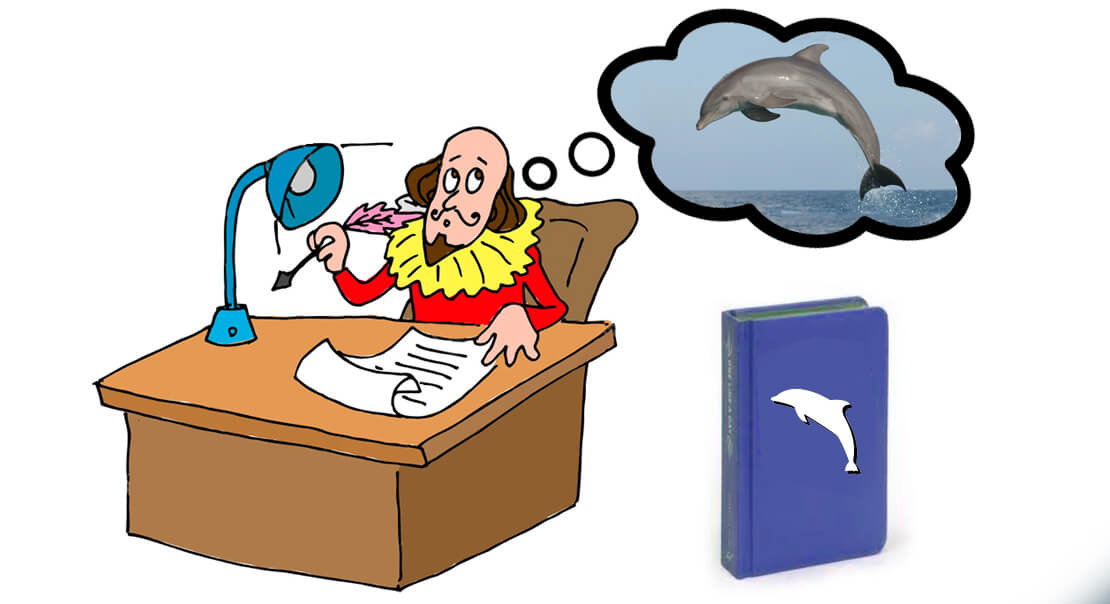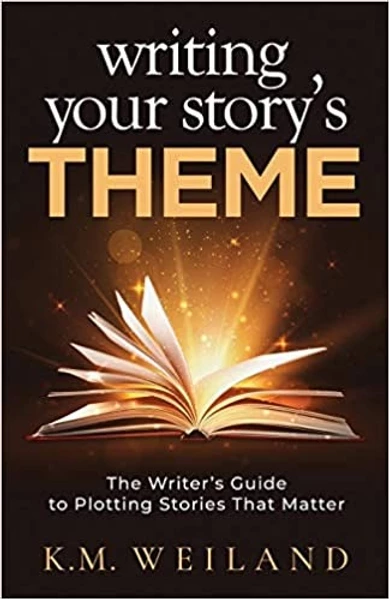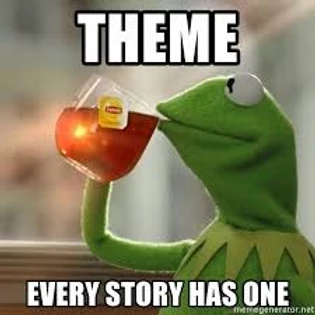
Crafting your Theme
What a theme is not the subject of the story or the "moral to the story." It's not the lesson from a Sunday School parable.
A theme is a universal idea, lesson, or message. It can be represented through dialogue, characters, characters' actions, and/or symbols. It can be woven throughout the story or it can be "realized" at the end -- as the character has grown and changed throughout the story.
Think of a theme as more of a mirror. It's a reflection of us. There's not a right or a wrong. It's more of something to think about. Something to chew on. Ideas to consider.
You have a story inside of you because you have been thinking about something. An event, something someone said, did (or didn't do), something you saw or heard about, an experience... any number of things can make you ponder. And spark your story.
To help you begin bring your theme into focus, review these classic examples.
So, don't be intimidated about theme. It's not complicated or difficult. It's already there. We just need to brush off the dirt and give it a little shine.
Common Themes in Books
|
|
|
|---|---|
| Teamwork |
These books have characters that work together to achieve something they could not have achieved on their own. |
|
Friendship |
These books have characters who trust each other and are loyal to one another. |
|
Kindness |
Thsee books have friendly characters who are generous and considerate of others. |
|
Compassion |
These books have characters who want to make those who are suffering feel better. |
|
Courage |
These books have brave characters who never give up even when facing difficult times. |
|
Perseverance |
These books have characters who never give up even when facing difficult times. |
|
Honesty |
These books have characters who find that it is best to always tell the truth. |
|
Loyalty |
These books have characters who trust each other and never turn their backs on friends or family. |
|
Overcoming Challenges |
These books have characters who meet a challenge without giving up or giving in to fear. |
|
Accept Others’ Differences |
These books have characters who respect the differences, views, and beliefs of others. |
|
It’s Important to Try New Things |
These books have characters who learn something because of their willingness to try new things. |
|
Believe in Yourself |
These books have characters who display self-confidence and show pride in themselves. |
|
Be Happy With What You Have |
These books have characters who learn that they shouldn’t take things for granted. |
[bctt tweet="Crafting Your Theme"]
Common Themes in Books
You will find that many books include a theme, or lesson, that is revealed as you read the story. Below are common themes you will find in your books.
|
|
|
|---|---|
|
Acceptance |
These books have characters who respect & accept others’ differences and beliefs. |
|
Courage |
These books have brave characters who have the strength to overcome a fear or accept a risk. |
|
Perseverance |
These books have characters who never give up even when facing difficult times. |
|
Cooperation |
These books have characters who work together to solve a problem or achieve a goal. |
|
Compassion |
These books have characters who want to make those who are suffering feel better. |
|
Honesty |
These books have characters who find that it is best to always tell the truth. |
|
Kindness |
These books have friendly characters who are generous and considerate of others. |
|
Loyalty |
These books have characters who trust each other and never turn their backs on their friends. |
You know what happens now: Grab your sketch pad or find that place on your computer (or phone) where you generate those ideas. Check out the example templates as a starting point or create your own.
Consider a "cluster" or "thinking map" where in the center you write your theme (it should just be few words).
Around this theme, have an area for "symbols"; "colors"; "character actions"; "plot points"; "setting"; "description" and so forth.
Not everything will be filled in and you may want to include other ideas than I have listed.
Remember, you want to just let the ideas "free flow" and then pull out the gem ideas later.
1. Think about your audience. Who is most likely to read and enjoy your story? Girls? Guys? About how old will they be? What are some things they might be going in their lives that may connect to?
2. Your message: What do you your readers to think about? To consider? What idea do you want to view through a new lens?
3. Brainstorm ideas that can represent your theme. You have some ideas for your message. Now, play with the idea. What object (symbol), color, character, saying, lesson, etc can represent your message?
In the short video above: "In this Learn to think like writers do! In this language arts movie on theme, Tim and Moby discuss the universal ideas that hide within all good tales.
You’ll discover just what motifs are, and how they use symbols to reinforce the message an author is trying to deliver!
Then you’ll pick up details on the importance of plot, setting, dialogue, and characterization in how we understand the world of a story.
Meanwhile, Moby Wan will walk you through a place far, far away to reveal how themes give stories a deeper and universal meaning. So if you want to learn what writers are really saying, click on the button and get ready for a little light motif!"
4. Try simple symbols
~ an object (broken glasses to show the character is blind to the truth)
~ an event (the character always misses the sunset because she can't find closure)
~ a color (the character of hope always wears green)
~ 'Elements', like blood, fire or water (a character trying to escape her past or his fate is always washing, getting caught in the rain, taking showers,)
Note: If you are fan of the Leonardo Dicapario version of Romeo and Juliet, you may remember there's more water images in there than in the Pirates of the Caribbean. Why?
It was an intentional decision by the director Luhrman to reflect the character's need to 'wash away' or 'cleanse' themselves from their fate. Even the first time they meet--it's through a fish tank.
5. Consider your characters. Your story's characters are overcoming the conflicts you've put into the plot to challenge and ultimately change them.
Is this a way to expose the theme?
Are there the "moral dilemmas" in your character's journey that will force him or her to consider the message you want your readers to consider?
6. Remember the power of description. The most important moment in your story--where the theme is present--deserve the greatest attention to detail.
Like setting a table, getting ready for a date, decorating your room~ you want to make sure every detail in these scenes are just right.
Slow them down.
Find where the smallest details, used with intention, will make a difference.
7. Make your theme a part of your story plan: Take a look at your story "map": (whatever the outline you've chosen to use). Find those natural places where the theme can be explored.
This is a tricky topic! It will take time and practice. Here are some resources to help you with crafting your theme.

Theme—the mysterious cousin of plot and character. Too often viewed as abstract rather than actionable, theme is frequently misunderstood and left to chance.
Some writers even insist theme should not be purposefully implemented. This is unfortunate, because in many ways theme is story. Theme is the heart, the meaning, the point. Nothing that important should be overlooked.
Powerful themes are never incidental. They emerge from the conjunction of strong plots and resonant character arcs. This means you can learn to plan and implement theme. In doing so, you will deepen your ability to write not only stories that entertain, but also stories that stay with readers long after the end.
Writing Your Story’s Theme will teach you:
- How to create theme from plot and character.
- Why every supporting character and subplot should enhance the theme.
- How to prevent theme from seeming preachy or “on the nose.”
- What to consider in identifying the best theme for any given story.
- And much more!
Conscious mastery of theme will elevate every story you write and allow you to craft fiction of depth and meaning.
[bctt tweet="Crafting Your Theme"]
Recommended Reading





